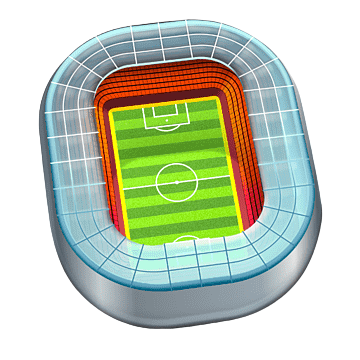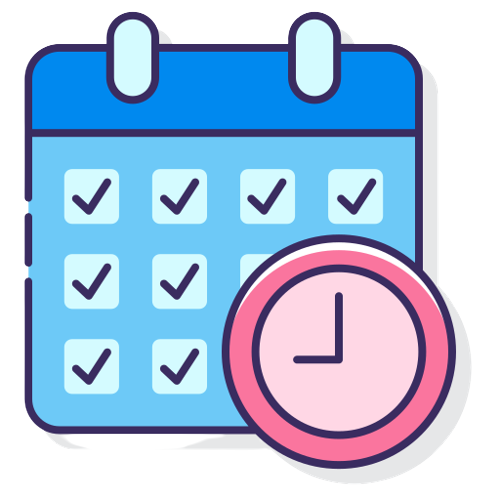It's Time To Extend Your Getting An ADHD Diagnosis Options
페이지 정보
작성자 Lou Heighway 댓글 0건 조회 149회 작성일 24-05-06 03:04본문
 Getting an ADHD Diagnosis
Getting an ADHD DiagnosisA diagnosis of ADHD can alter your life. It explains why some individuals have difficulty staying organized, following directions or staying focused.
Ask your family doctor or therapist for a referral to a specialist. Contact your insurance provider to determine if they cover ADHD evaluations for Private Adult Adhd Diagnosis patients.
Diagnosis Process
A psychologist, psychiatrist, or specialist nurse will need to assess adults in order to make a proper diagnosis. They are the only healthcare professionals who can determine ADHD in adults.
Often, an initial assessment will start with a thorough interview about your lifestyle and symptoms. The healthcare professional may be able to inquire about the length of time you have had symptoms and how they are affecting your life. They might ask you to talk to a family member or friend about your symptoms.
The evaluation process may also include questions about your childhood. Since current guidelines don't allow a physician to diagnose ADHD in adults without proof of the disorder's presence in childhood, your healthcare provider may wish to look at your school records or talk to teachers or other people who knew you as a child. They may also inquire if you have ever had any mental health issues such as anxiety or depression.
In certain situations the evaluator might recommend cognitive testing for example, IQ tests or assessments for memory or learning issues. They might also suggest different types of medical tests to rule out physical conditions that could be causing your symptoms, like seizures or thyroid disorders.
If your doctor is sure that your symptoms are caused by ADHD, they may recommend additional diagnostic tests to confirm and determine the severity of the problem. These tests may include urine and blood tests, medical examinations as well as educational or psychological testing.
Tests will be used to determine the levels of specific chemicals that could be linked with ADHD in your body, for example serotonin, dopamine and norepinephrine. They will also test your blood pressure and heart rate. You may also be offered an spirometry test, which measures lung capacity. They might also suggest an imaging scan of your brain to check for any functional or structural issues. In some instances the evaluator might suggest that you or your child be evaluated for other conditions that may have similar symptoms similar to ADHD, such as depression and anxiety, or mood and personality disorders.
The Interview
There are numerous ADHD questions and tests that you can use as a screening tool before making an appointment with your physician. These tests can alert you to the possibility that you may have ADHD However, an interview with a doctor is the only method to confirm the diagnosis.
The process could last between 2 and 3 hours. It includes educating the patient about ADHD and the possible effects on their symptoms. The clinician may also ask about any history of addiction to drugs or depression since these problems can co-occur along with ADHD.
A good diagnostic interview will involve a discussion of the patient's symptoms and their impact, and the psychologist or psychiatrist will use a checklist designed to evaluate hyperactivity/impulsivity and inattentiveness. In addition, the clinician will need to look over the school records and speak with teachers. If the patient is an older adult, they might also interview a spouse or family member. Personal experience can reveal facts that cannot be gleaned from questionnaires.
Some doctors rush through this procedure or insist on only seeing a patient once instead of conducting a thorough examination. This could lead to a incorrect diagnosis. This is a red-flag when the doctor is too rigid in their criteria for diagnosing ADHD.
For adults, the evaluator could request that the patient complete scores for each symptom on an ADHD checklist and then provide examples of how these symptoms have impacted their lives. The evaluator will then compare the ratings to the checklist and evaluates for ADHD.
For certain adults, it may be a relief to receive a diagnosis of ADHD. However, the emotions that accompany it -like guilt for not living up to expectations, or the grief that the disorder was not discovered until later in life -- can be complicated. The impulsivity and inattention that are characteristic of ADHD can have serious implications in many areas of a person's life, including relationships, career and health.
The Tests
Finding an ADHD diagnosis can be a difficult and confusing process. It involves many forms as well as tests, interviews and other forms of testing. You can prepare by getting advice from reliable doctors, family members and friends. You should also research the physician and their qualifications to ensure they're a good match to your needs. It is crucial to find specialists who specialize in private adhd diagnosis diagnosis. This will ensure that you or your child receives a precise diagnosis and the most effective treatment.
The first step in an ADHD assessment is an interview with an evaluator. The evaluator might ask you or your child questions in order to know more about your symptoms. The evaluator would like to know how the symptoms impact your daily life and whether they interfere with work, school or relationships. The evaluator might also employ rating scales to measure your ADHD symptoms. These usually consist of checklists that ask you or someone close to you several questions. You may be asked if you often forget appointments or how often you interrupt other people.
Many evaluators also ask people who are familiar with your child or you to fill out questionnaires regarding what they have observed. Adults may be asked to fill out questionnaires by their spouses, children, or parents. Children may be asked to fill out questionnaires from coaches, teachers daycare workers, coaches or the nannies. Personal experience can reveal details that are not possible to obtain from a survey.
Some evaluators will also perform cognitive testing to see if learning or intellectual disabilities are contributing to your symptoms. They could also test for mood disorders such as depression or bipolar disorder and incipient psychosis, or substance abuse. They could also test for underlying medical conditions like hypothyroidism or seizures.
A few evaluators will offer you or your children an ADHD screening test to determine how you respond both to stimuli that are targeted and non-target. For instance the TOVA (Timed On-Only Visual Attention) is an FDA-cleared test that measures your ability to pay attention and remember geometric shapes. The evaluator will look at how often you respond to non-target stimuli, and how long it takes you to respond to the target stimuli. This will help the evaluators determine if you suffer from an impulsive ADHD or inattentional ADHD.
Follow-up
Multiple mental health professionals are qualified to diagnose ADHD and provide ADHD evaluations. It could be a psychologist or psychiatrist, neurotherapist or psychotherapist. The specialist will ask you what the issues you are facing and how long these problems have been happening. He will also ask if there any family history of ADHD. The disorder is believed to be between 70 and 80 percent heritable. Genetics play a significant role in whether your child or you will suffer from symptoms.
He will ask about how ADHD affects you or your child at home, school, and work. He will ask you or your child about their behavior in different environments because ADHD symptoms vary in different settings. To be diagnosed with ADHD either you or your child will also require at least six symptoms of hyperactivity, inattention, or impulsivity that affects daily functioning. This must last at least six months.
To aid the doctor Private Adult Adhd Diagnosis in making an accurate diagnosis, they will need to exclude other conditions. Other psychiatric disorders, such as anxiety and mood disorders as well as intellectual disabilities could be a factor. Certain medical disorders that affect brain function, like thyroid issues, should also be considered. In addition, the doctor will inquire about your child's sleeping patterns as well as any previous accidents or injuries that could have affected the development of your child's brain.
The doctor will also determine whether the signs of ADHD in your child or you are caused by any health condition or medications you or your child take. For example, stimulant medications used to treat ADHD can result in side effects like stomachaches and trouble sleeping. These side effects could also be caused by other medications, including antidepressants, sleep medications, and some sleep aids.
The specialist will also need to determine if there is an underlying comorbidity. This means you or your child could be suffering from another illness that could cause symptoms of ADHD. This could be bipolar disorder, depression or anxiety disorder. The psychiatrist or psychologist will examine the data and make an assessment.
댓글목록
등록된 댓글이 없습니다.





